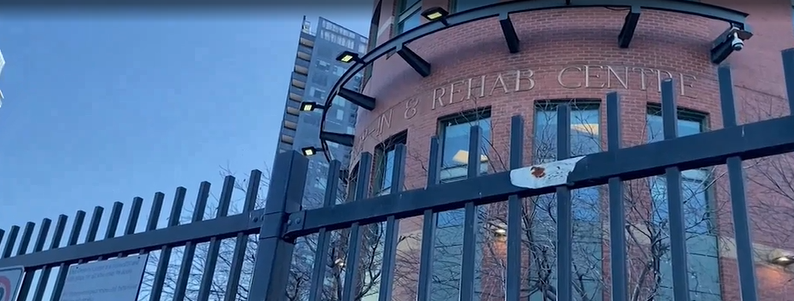Calgary Drop-In Centre to receive more support

Posted Feb 15, 2023 7:39 pm.
Calgary Drop-In Centre (DI) will soon expand its services to provide more support for those who use substances.
“Everybody can see that there’s a need with regards to ensuring that people in the throes of addiction have access to treatment and the opportunity of recovery,” said Nicholas Milliken, Alberta’s Minister of Mental Health and Addiction.
This comes after the Government of Alberta announced Wednesday it’s allocating $4 million for detox and pre-treatment for those with substance use disorders.
In September of last year, the province halted plans to create a supervised consumption site at the DI, saying there were concerns within the community.
“We know there is a lot more work to do, as we continue to see that mental health and addictions create further barriers to ending a person’s experience of homelessness,” said Sandra Clarkson, executive director, Calgary DI.
The funding will create 15 medical detox beds and 20 pre-treatment beds, and the response teams will be made up of paramedics and nurses trained to respond to overdoses.
“In addition to these new beds, This funding will also support the creation, as I mentioned, of the dynamic overdose response teams,” Milliken said.
It’s through the Calgary Public Safety and Community Response Task Force, and comes one day after funding was announced for more sheriffs in downtown Calgary.
“What we’re seeing in terms of issues of social disorder in the downtown core is a very complex issue, and I think it takes a multi-faceted approach, and having higher visibility of uniforms on the street is just one part of that,” said Clarkson.
READ MORE:
Chelsea Burnham, peer navigator with Aawear, says the detox beds need to come with wrap-around supports, and she questions the location.
“But then you walk out of the DI- I’m assuming this is going to happen, and they see their friends that they haven’t seen in a week or two, because they’ve been detoxing, and the friends might be like hey let’s get high, or maybe they wanna get high,” Burnham said.
“There’s just so much there … I just don’t see their logic in choosing that location.”
The money is hoped to help up to 1,000 Calgarians each year. In 2022, the province reported over 1,400 substance use deaths – with December not included.








